Target Audience: Ages 65+
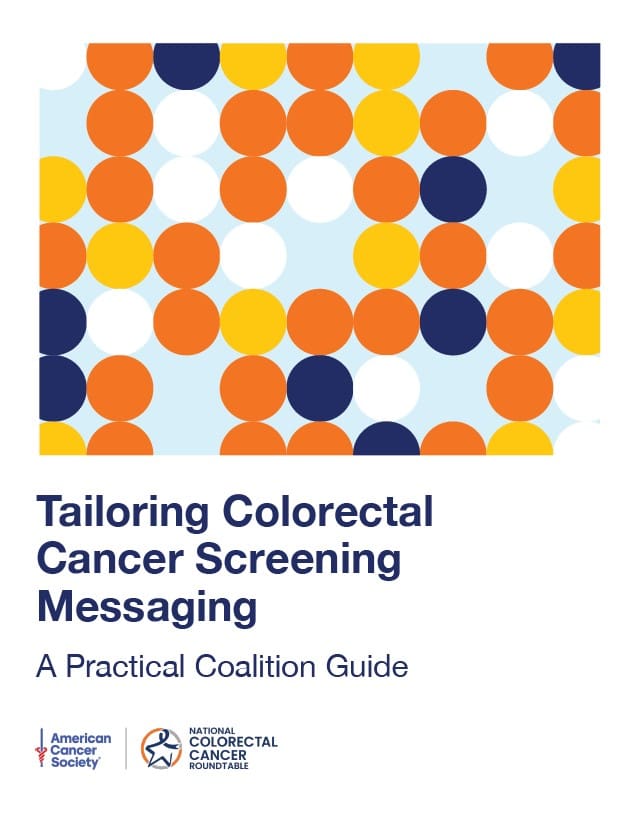
Tailoring Colorectal Cancer Screening Messaging: A Practical Coalition Guide
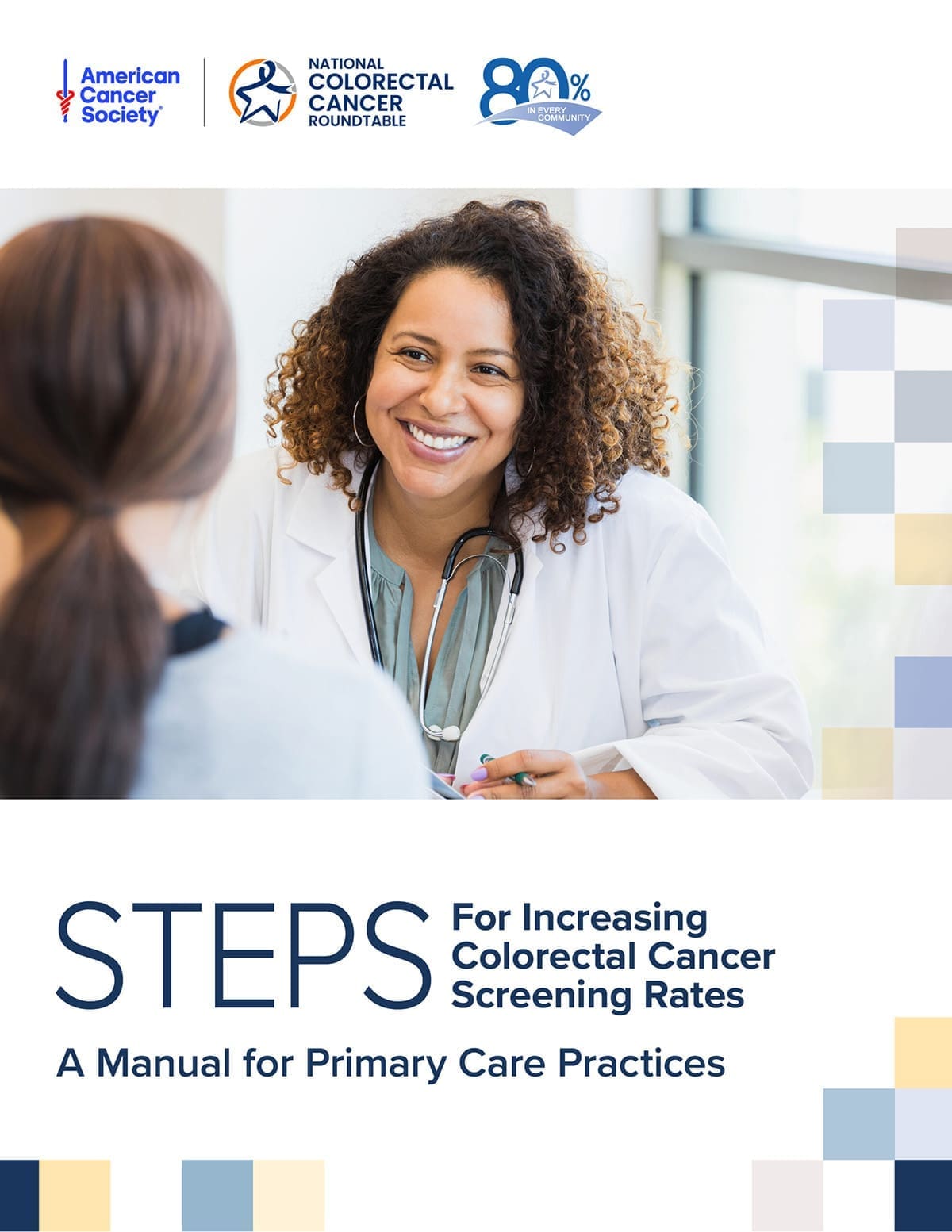
Steps for Increasing Colorectal Cancer Screening Rates: A Manual for Primary Care Practices
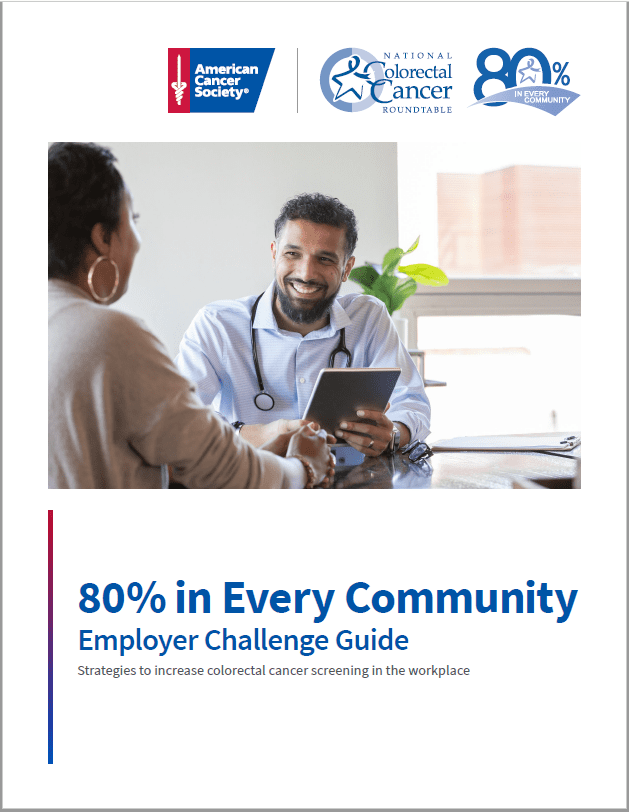
80% in Every Community Employer Challenge Guide

Webinar: 2022 NCCRT Steps Guide Update – July 25, 2022
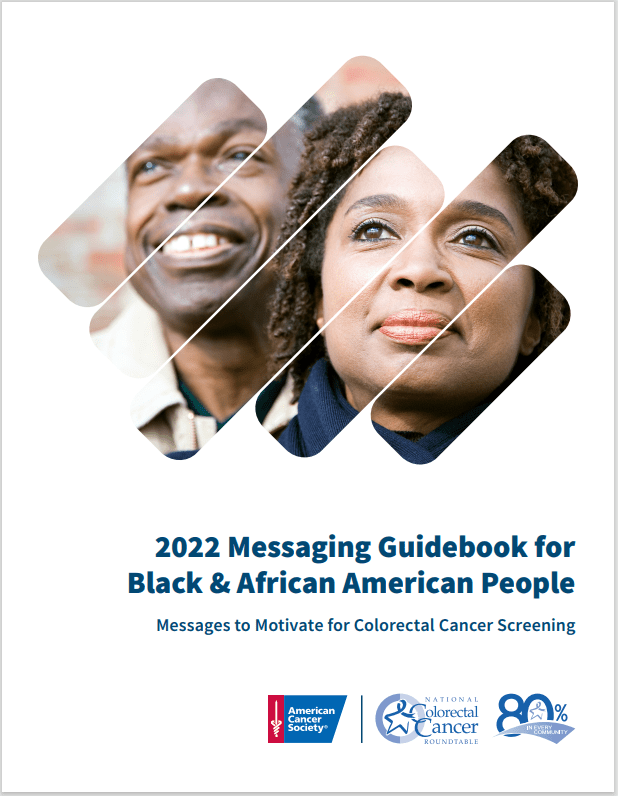
2022 Messaging Guidebook for Black & African American People: Messages to Motivate for Colorectal Cancer Screening

Webinar – What Do the Data Tell Us: What Can We Learn from the Latest Colorectal Cancer Screening Rate Trends Over Time? – November 3, 2021
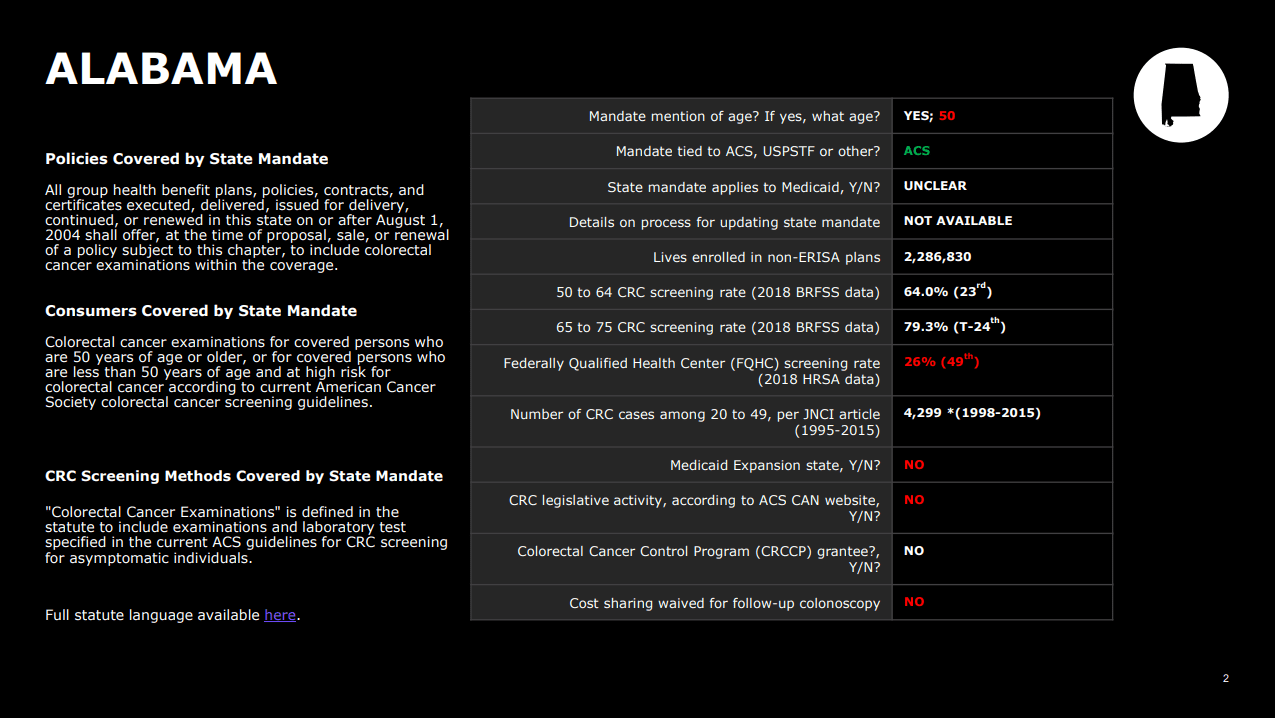
State-by-State Colorectal Cancer Screening Landscape
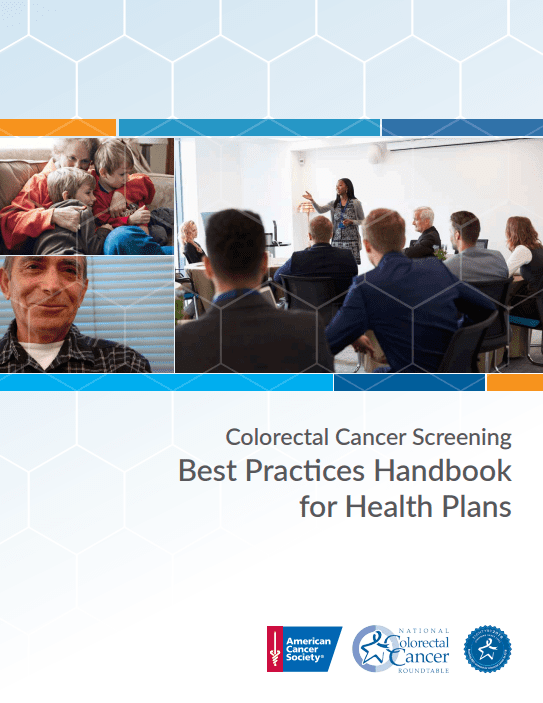
Colorectal Cancer Screening Best Practices Handbook for Health Plans
